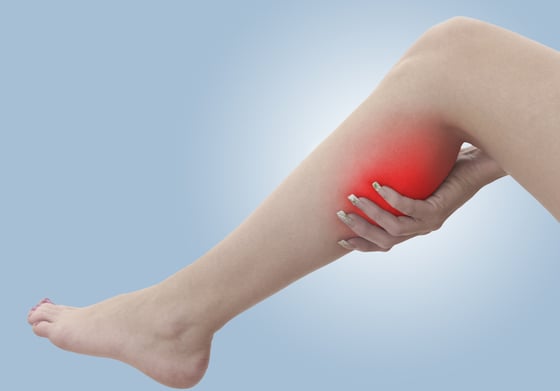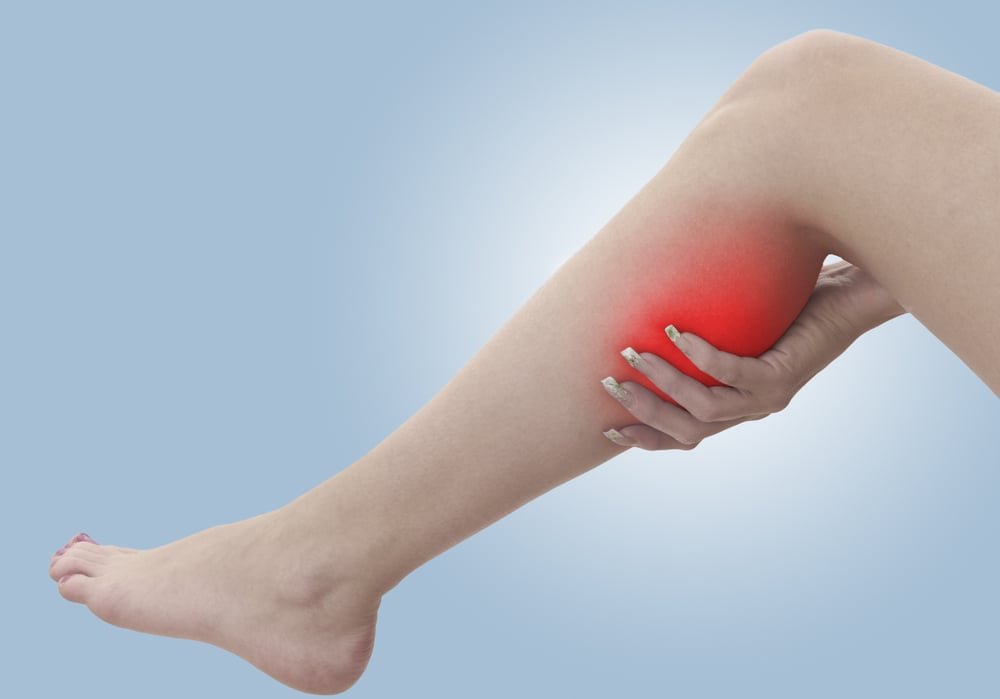Why Does My Leg Hurt So Badly After a Leg Cramp?

If you've ever been woken up by a sudden, intense pain in your calf, you know the agony of a leg cramp or a "Charley horse." It’s a pain that can stop you in your tracks. However, what many people don't expect is that the soreness can stick around long after the initial muscle spasm subsides. Understanding why this happens and what might be causing these cramps in the first place can help you find relief and possibly prevent them from returning.
Key Takeaways
- The lingering soreness after a leg cramp is due to a lack of blood flow and the buildup of lactic acid in the muscle during the intense contraction.
- This pain and tenderness can last for a couple of days, similar to the muscle soreness you feel after a new or strenuous workout.
- Frequent leg cramps, especially those that happen at night while you are resting, can be a sign of an underlying vein condition like venous insufficiency.
- If your cramps are related to a vein condition, treatments are available that can provide significant and often immediate relief from this disruptive symptom.
What Happens Inside Your Muscle During a Leg Cramp?
Leg cramps, or Charley horses, are sudden, involuntary, and very painful contractions, most often in the calf muscles. When the muscle spasms so intensely, it can physically pinch the tiny blood vessels that run through it. This intense constriction temporarily cuts off or reduces the normal blood flow and oxygen supply to the muscle tissue.
This situation is medically known as ischemia, which simply means there is an insufficient supply of blood to a specific area of the body. You may have heard this term used in relation to the heart during a heart attack, where blood flow to the heart muscle is blocked. While a leg cramp is not a life-threatening event, the underlying mechanism is similar—a part of your body is not getting the blood it needs to function properly. This lack of circulation is a key reason why the muscle feels so pained and can remain sore even after the cramp is over.
Why Does Your Calf Remain Sore After the Cramp?
Have you ever wondered why your calf feels so tender and achy for a day or two after a bad leg cramp? The primary reason for this lingering pain is the buildup of a substance called lactic acid within your muscle tissue.
When your calf muscle contracts so forcefully and involuntarily, it's working incredibly hard without adequate oxygen. As a result, it produces lactic acid as a byproduct. This process has a couple of important effects:
- Lactic Acid Causes Pain: The accumulation of lactic acid stimulates the pain receptors in the muscle, which is what creates that familiar burning sensation during and after the cramp. This pain acts as a protective signal, telling your body that the muscle is under extreme stress.
- Lactic Acid Causes Muscle Fatigue: As lactic acid levels rise, it interferes with the muscle fibers' ability to keep contracting efficiently. This disruption makes the muscle weaker and less responsive, which is what eventually causes the muscle spasm to stop.
The soreness you feel afterward is very similar to the delayed onset muscle soreness (DOMS) you might experience after a particularly tough workout. The muscle has been through an intense event, and the lactic acid buildup leaves it feeling tender and sore to the touch. This discomfort can last for up to two or three days as your body works to clear the lactic acid and repair any microscopic muscle damage.
The Connection Between Leg Cramps and Vein Conditions
While occasional leg cramps can be caused by dehydration, electrolyte imbalances, or over-exertion, frequent cramps can be a sign of something more. If your leg cramps follow a specific pattern, it’s important to pay attention.
Do your cramps happen mostly in the evening or at night? Do they wake you up from sleep? If this pattern sounds familiar, you may be dealing with an underlying vein condition, often called venous insufficiency or vein reflux.
With venous insufficiency, the tiny one-way valves inside your leg veins become weak or damaged. These valves are supposed to help push blood back up toward your heart. When they fail, blood can flow backward and pool in your lower legs. This stagnant blood flow allows inflammatory substances to build up in the leg tissues throughout the day. At night, when you are at rest, this inflammation can trigger painful muscle cramps and restless legs.
On the other hand, if you mostly experience cramps during the day while you are active or walking, it’s more likely that other factors are at play, such as arterial circulation issues or simple muscle fatigue. The timing of your cramps provides a big clue as to their potential cause.
The good news is that if your leg cramps are related to a vein condition, modern vein treatments can be remarkably effective. Many of my patients who have endured years of disruptive nighttime leg cramps find relief almost immediately after their very first treatment. It can be truly life-changing to finally get a full night of uninterrupted sleep.
A simple, painless vein screening can help determine whether your leg cramps might be related to a vein condition. If needed, a vein ultrasound can be used to get a clear picture of the blood flow in your legs and confirm the presence of vein reflux. Understanding the root cause of the soreness after a Charley horse and recognizing the potential link between leg cramps and vein problems is crucial for managing this painful condition. If you are struggling, it’s advisable to see a primary care provider or schedule a vein screening to sort out the cause.
Frequently Asked Questions (FAQs)
1. What can I do to relieve the soreness after a leg cramp?
To help with the lingering soreness, you can gently stretch the affected muscle. Applying a warm compress or taking a warm bath can also help relax the muscle and improve blood flow. Over-the-counter pain relievers can be used if the discomfort is significant. Staying well-hydrated is also important for muscle recovery.
2. Are leg cramps always a sign of a serious problem?
Not always. Occasional leg cramps are common and can be caused by simple things like dehydration, muscle fatigue from a new exercise, or staying in one position for too long. However, if your cramps are frequent, severe, and consistently happen at night, it's a good idea to speak with your primary care provider to rule out an underlying condition.
3. Can certain medications cause leg cramps?
Yes, some medications, including certain types of diuretics (water pills) and blood pressure medications, can have leg cramps as a side effect. If you started a new medication and noticed an increase in cramps, discuss it with the primary care provider who prescribed it.
4. How can I tell if my leg cramps are from a vein condition or something else?
The biggest clue is timing. Cramps related to a vein condition most often occur at night or during periods of rest after you have been on your feet during the day. Cramps caused by other issues, like arterial disease, typically happen with activity, such as walking a certain distance.
5. If my cramps are from a vein condition, what are the treatment options?
Treatments for venous insufficiency are minimally invasive and aim to close off the faulty vein, rerouting blood flow to healthier veins. This reduces the pooling of blood and inflammation, which in turn alleviates symptoms like leg cramps. These procedures are done in-office with little to no downtime.
Looking for expert vein care in Columbia, MO or across Mid-Missouri? Our specialists provide accurate diagnoses and personalized treatment plans tailored to your needs. Missouri Vein Care is a trusted option among vein care clinics in Missouri, helping patients address swelling, discomfort, and cosmetic vein concerns. With advanced technology and experienced providers, our clinic delivers comprehensive care you can feel confident about.




